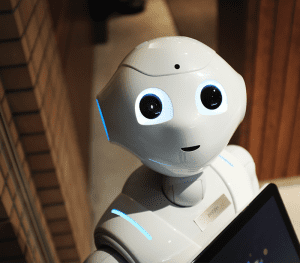Artificial Intelligence and its Future in AdTech

According to a Forbes article published this past April, ‘the time for advertisers to embrace artificial intelligence is now.’ Nearly every advertising trends list will highlight AI as a technology opportunity you can’t afford to ignore. But as this technology continues to develop, you may have many questions about using artificial intelligence as part of your advertising strategy. Is AI a new evolution in adtech, or simply a passing trend? And if artificial intelligence as an advertising benefit is here to stay, does that mean that it’s right for your organization?
What is Artificial Intelligence?
Artificial intelligence is a broad field of research and technology that covers all aspects that give human-like reasoning and ‘intelligence’ to machines. AI includes everything from reactive machines, like IBM’s Jeopardy-winning computer Watson and limited memory machines such as self-driving cars. Artificial intelligence, machine learning in particular, powers online algorithms that determine your social news feed and make digital assistants like Siri and Alexa so useful.
The AdTech Role of Artificial Intelligence
For advertisers, artificial intelligence offers the powerful ability to automate many complex and time-consuming tasks. AI and machine learning are perfectly suited for finding the right advertising opportunities, targeting the right audiences, personalizing the ad itself and setting the right bid to meet your specific goals. This level of artificial intelligence is already built into many advertising programs, including the most prevalent, Google Ads. When you set up a new ad campaign and choose a strategy that optimizes conversions or optimizes clicks, you are already using artificial intelligence in your advertising strategy.
Some organizations are already looking to uses of AI that go well beyond this baseline use in programmatic advertising. The actual creative or advertisement itself is the next area that many expect artificial intelligence to disrupt; this is where much current experimentation focuses. Coca-Cola for example is currently looking at ‘automated narratives’ that would employ AI bots to create music and edit closing credits of its commercials. AI programs can theoretically be used to determine colors, font and layout options that are most likely to result in sales, eliminating some of the challenges that come from designing ad creatives.
Should I use AI?
Artificial intelligence can be an invaluable tool in your organization’s advertising arsenal. Most likely, you already use AI and machine learning for your business in one way or another, from targeting Google Display Ads to targeting Facebook posts to have the greatest impact on your intended audience. The real question, then, is not whether or not you should use AI, but the extent and ways in which you use it. Your strategy for employing artificial intelligence tools will depend on many factors, including your goals, resources and budget, and should only be determined based on careful consideration of each factor. It’s also important to note that there are cases in which AI simply cannot replicate human insight and instinct.
The Future of AI in AdTech
Before you invest time and finances into a full-fledged AI strategy, it’s also important to know this trend’s longevity. Is the adtech industry leading towards an AI future, or is artificial intelligence just another buzzword that will soon be passed over for the next trend?
Most business and technology experts agree that artificial intelligence is not to be taken lightly, some, like Elon Musk, even seeing it as a potential threat. It has already become so ingrained in many day-to-day business operations that doing without it would be nearly unimaginable. What is more difficult to predict is how far artificial intelligence will go — and how foundational it will become to every business that hopes to experience continued success. With organizations like Google and Facebook continuing to invest in the future of AI, it is certainly a technology to continue to watch.


